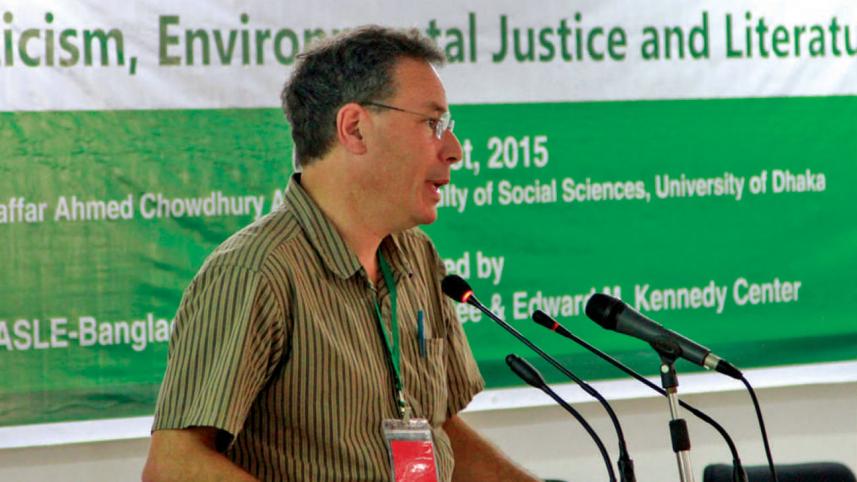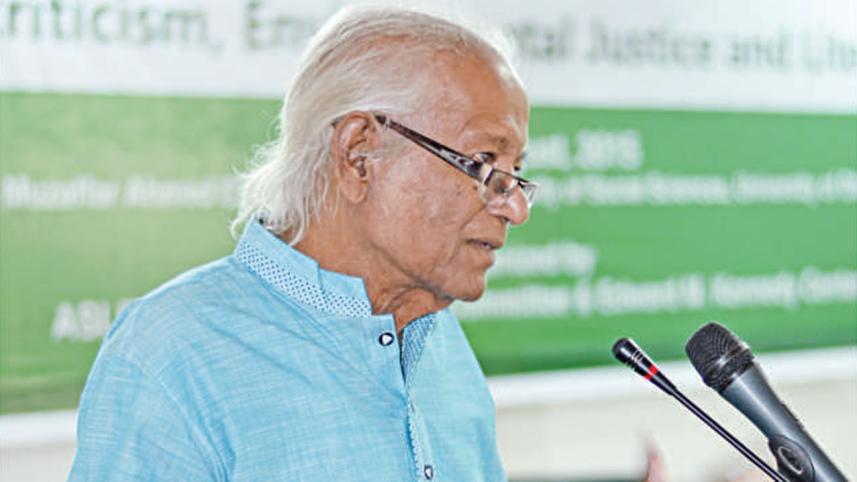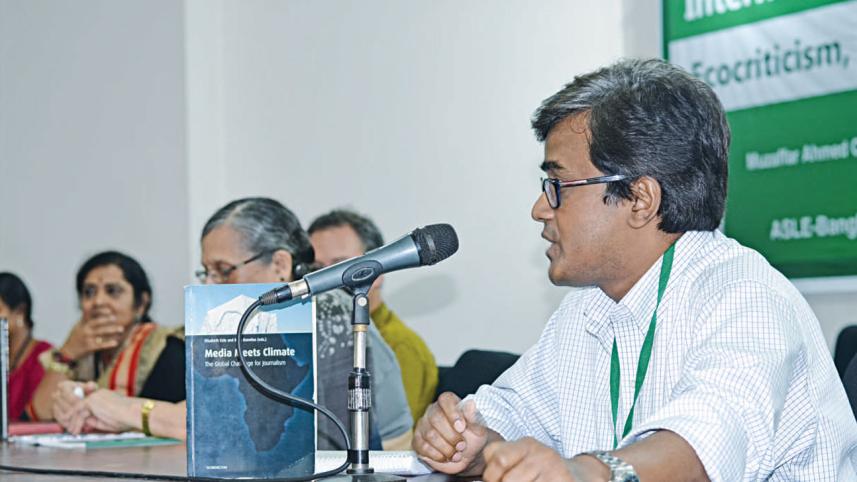For the Environment

Who says that only those belonging to disciplines such as Environmental science or Geography can be concerned about the environment? What do we mean by environment- just the nature that we live in or should we consider the hazards of manmade environment as well?
The study of eco-criticism is able to give answers to a myriad of queries regarding environment and environmental justice and a group of eco critics belonging to the Association for the Study of Literature and Environment (ASLE) are facilitating those solutions for us.
Since its establishment in 1992, ASLE has been supporting the intellectual work of its members and easing a global intellectual exchange and collaboration between its members and professional organisations around the world. It has been working as an active international platform where scholars and teachers from different disciplines, including literature, history, philosophy, environmental studies, cultural geography, film and media, cultural studies, women and gender studies, religious studies, ethnography, psychology, and anthropology, come together with a similar vision and commitment towards environment. ASLE believes in the vision of “an inclusive community whose members are committed to environmental research, education, literature, art and service, environmental justice, and ecological sustainability.”
“Eco criticism is by its nature an interdisciplinary movement that aims to engage with a vast range of fields- environmental history, philosophy, sociology and science studies, and ecology and the life sciences,” comments Munasir Kamal, an ASLE organiser of Bangladesh.

“In Bangladesh, professionals belonging to various diverse fields such as sociology, economics, geography and environment have also joined the movement and discussions regarding the environment. We thought of creating a forum where all disciplines could come and work toward the common goal for establishing environmental justice,” Kamal says with that idea in mind, the ASLE-Bangladesh Planning Committee and EMK Center organised a two day international interdisciplinary conference called 'Eco-criticsm, Environmental Justice and Literature' at the University of Dhaka.
“Here, by 'discipline' we don't mean only academic discipline, in fact, we attempt to bring in other art forms like photography, music, theatre production that deal with this issue,” explains Kamal.
Even though this was the first of its kind conference in the country, organisers have received immense support and response from everyone. They have received 60 conference papers on diverse topics, starting from plant biodiversity to health effects of occupational and environmental hazards; from how tea labourers in Habiganj are being victimised to the realm of eco-consciousness in Michael Jackson's work. For two days, they had three parallel sessions going on everyday and to their amazement, they found many people enthusiastically participating in those sessions.

ASLE has branches and affiliations in many countries, including the UK, Ireland, Japan, India and Korea. “In Bangladesh, we are working as the planning committee in the process of becoming affiliated with ASLE,” says Kamal. “Dr Scott Slovic, the founding president of ASLE was present as a keynote speaker in the conference and he was quite excited to know that people have shown a lot of interest in this area. We have had a meeting about the activities we could do in future, “he adds.
“Based on the response we have received, we have made plans on three levels,” says an organiser of ASLE, Sabrina Binte Masud, regarding future plans of the organisation in Bangladesh. Initially they would like to arrange a reading circle, where they can share study materials in the fields of environmental literature, eco-criticism, environmental studies, literature and science and generate collaborative research. “Secondly, we are planning to organise seminars in different universities with students of different disciplines,” Masud continues.
“Being an interdisciplinary issue, we hope students belonging to a wide range of institutions, fields, and interests could connect with one another to organise lectures, readings and conference panels and to collaborate on projects and initiatives," says Sabrina optimistically. Finally, we would like to arrange an international conference each year in Bangladesh and publish a journal every two years based on the papers we receive in the conference.”



 For all latest news, follow The Daily Star's Google News channel.
For all latest news, follow The Daily Star's Google News channel.
Comments